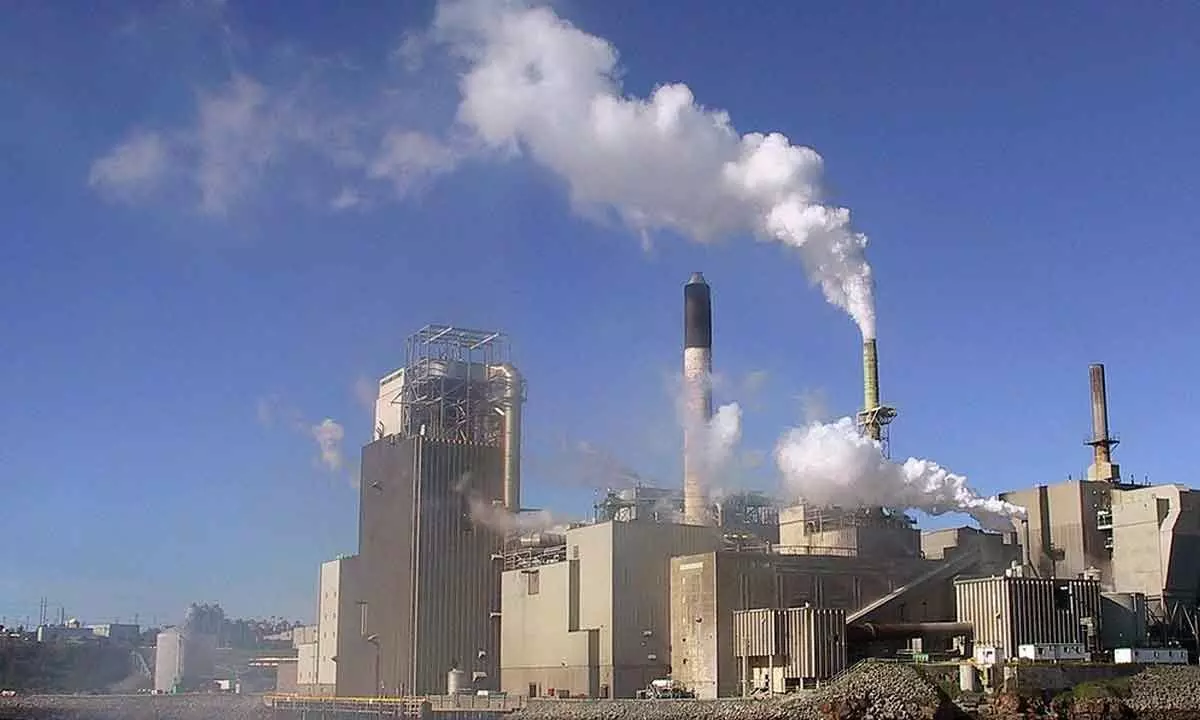Govt issues fresh safety norms to prevent industrial mishaps

In light of recent industrial accidents in the State, the Andhra Pradesh government has notified fresh safety guidelines to institutionalise preventive measures to check accidental leakage of toxic gases and dangerous chemicals in factories.
vijayawada: In light of recent industrial accidents in the State, the Andhra Pradesh government has notified fresh safety guidelines to institutionalise preventive measures to check accidental leakage of toxic gases and dangerous chemicals in factories.
Madireddy Pratap, Director General of AP Disaster Response and Fire Services (DRFS), said the new guidelines issued under the AP Fire Service Act, 1999, would go a long way in averting accidents in industrial units. "Democratic checks and balances resulting from public disclosure will go a long way in preventing major disasters," Pratap pointed out. Periodic mock drills and community awareness programmes are some of the preventive measures that are now being mandated for industrial units.
Under Section 14(1) of the Act, all companies and industries, including ports, which store or process any toxic, hazardous or explosive chemicals, are required to disclose that information every three months. That will enable the first responders -- police, fire services and health personnel -- to conduct joint mock drills and also create awareness among the local communities on the likely hazards and possible preventive measures, according to the DG.
"Any violation of the minimum safety provisions will attract prosecution not only under the AP Fire Service Act but also under the Indian Penal Code (IPC)," the DG warned. A spate of accidents over the last few years, in which many lives were lost, exposed the lack of preparedness and adequate safety norms in industrial units with preventive mechanisms found wanting. Various official committees that probed into these accidents have established the omissions on part of the managements and insufficient infrastructure to handle such major accidents.
That there is no basic information about the nature and the amount of chemicals and gases stored in many of the industrial units leaves the first responders clueless and unprepared to handle an emergency situation, the committees have noted. In May 2020, leak of styrene vapour from LG Polymers plant near Visakhapatnam left 12 persons dead and close to 1,000 people sick. In April 2022, an explosion in Porus Laboratories in West Godavari district killed 10 people.
In June this year, leak of poisonous gas from a company in the industrial area in Anakapalli district left over 200 workers in an apparel manufacturing unit sick, which was located away from it.
The source of the leak took many weeks to be established. A month later, there was again a gas leak from an "outside source" but over 300 workers, mostly women, of the apparel unit fell ill. Had information relating to storage of toxic chemicals in factories been made public, it would have been easy to pinpoint the source in case of a leak and take immediate steps to contain it.
There are 278 cold storage units in the State, most of which are used for storing dry red chillies. Going by past incidents of fire that reduced the cold storage facilities to ashes in some parts of the State, the DRFS conducted experiments - in coordination with ONGC and industry experts - using liquid nitrogen, aerosol and liquid carbon dioxide to douse the blaze.
While DRFS is acquiring fire tenders, with liquid carbon dioxide capacity of 10,000 kg each, to be stationed near clusters of cold storages, isolated units have been directed to maintain a bank of liquid carbon dioxide cylinders to handle emergency fires.
The new guidelines that have been issued also suggested putting in place a 'decentralised fire safety system' and installing automatic heat and temperature sensing devices, fire detection and alarm systems. Industrial units have been authorised to use foam generators to contain oil-related fires.
Noting that "no industry is an island", DG Pratap mandated that industrial units located in a vicinity sign "mutual aid agreements" to fight fires. There are 220 pharmaceutical units in the State, many with multiple exothermic reactors. Explosion of these reactors due to runaway exothermic reactions has been identified as the root cause of fatal accidents. The DRFS, accordingly, has asked the managements of the pharmaceutical companies to adopt latest safety technologies, besides posting qualified and well-trained employees to handle the reactors. "We can have equipment to fight fire but not an explosion. Hence, all care is to be taken to avoid conditions leading to an explosion that don't give any time for it to escalate," Pratap observed.(PTI)















